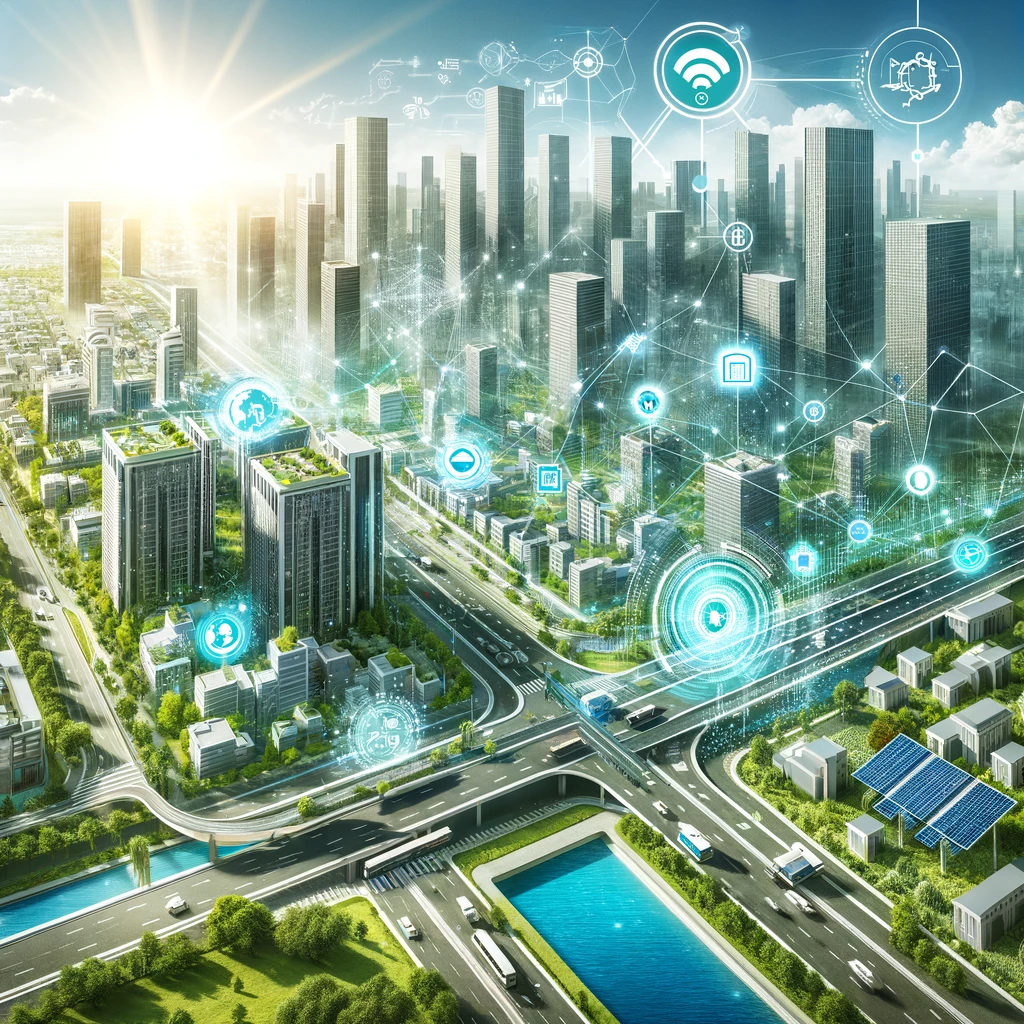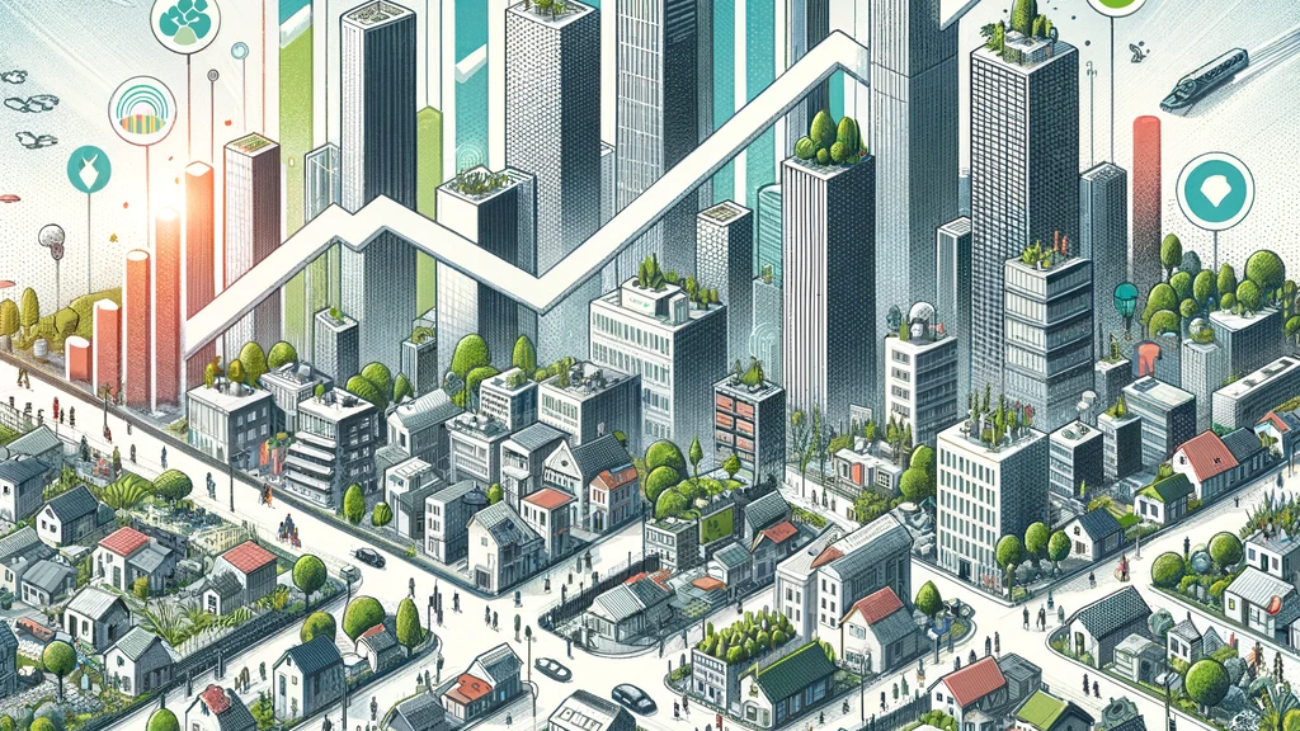In an era where urbanization is accelerating at an unprecedented pace, the concept of smart cities has emerged as a beacon of hope for sustainable development. By integrating advanced information and communication technologies (ICT) into the fabric of city management, smart cities aim to optimize operational efficiency, enhance the quality of life for residents, and promote economic growth. The 2024 IMD Smart City Index offers a comprehensive evaluation of how cities worldwide are leveraging these technologies to address the challenges of rapid urban expansion and to build more resilient, inclusive, and sustainable urban environments.
As the global population continues to concentrate in urban areas, the need for innovative solutions to manage resources, reduce environmental impact, and improve public services becomes ever more critical. The United Nations forecasts that by 2050, 70% of the world’s population will reside in cities, adding an estimated 2.5 billion people to urban centers. This rapid growth places immense pressure on urban infrastructure, social systems, and the environment. Smart city initiatives are pivotal in tackling these issues, providing a framework that not only addresses immediate concerns but also ensures long-term sustainability and improved quality of life for urban dwellers.
The IMD Smart City Index 2024 is a valuable tool for assessing the progress and effectiveness of smart city strategies across the globe. By ranking 142 cities based on the perceptions of their residents, the index offers a unique perspective on how well cities are integrating technological advancements with existing infrastructure to meet the needs of their populations. This year’s rankings highlight the successes and challenges faced by cities at different stages of smart city development, offering insights that can guide policymakers, urban planners, and stakeholders in their quest to create smarter, more livable cities for the future.
What Smart Cities Really Mean
A smart city utilizes information and communication technologies (ICT) to enhance operational efficiency, disseminate information to the public, and improve the quality of government services and citizen welfare. The primary goal is to optimize city functions and promote economic growth while simultaneously improving the quality of life for its residents. This is achieved through the strategic use of smart technologies and data analysis, which enable city administrators to make informed decisions, streamline processes, and address urban challenges more effectively. From traffic management systems that reduce congestion to smart grids that enhance energy efficiency, the integration of ICT in urban planning and management is transforming cities into more responsive, adaptive, and sustainable environments.
However, the true value of a smart city lies not merely in the quantity of technology deployed but in the effectiveness of its application. The emphasis is on how well these technologies are integrated to create a cohesive and efficient urban ecosystem. For instance, real-time data collection and analysis can significantly enhance public safety, healthcare services, and environmental monitoring, thereby directly impacting the well-being of citizens. Moreover, fostering an inclusive digital infrastructure ensures that all residents, regardless of socio-economic status, benefit from the advancements. Thus, the success of a smart city is measured by its ability to leverage technology to deliver tangible improvements in the everyday lives of its citizens, fostering a more connected, sustainable, and resilient urban future.

Why We Need Smart Cities
According to the United Nations, 70% of the world’s population will reside in cities and urban areas by 2050, resulting in a substantial rise in emissions and energy consumption. This rapid urbanization will add another 2.5 billion people to cities across the globe over the next three decades, exerting immense pressure on urban resources. The swift pace of growth poses significant challenges for environmental, social, and economic sustainability, as existing infrastructure and systems struggle to keep up with the increasing demands. The impact on natural resources, public services, and urban infrastructure necessitates innovative solutions to maintain livable and functional cities.
Smart city initiatives offer a viable framework to address these challenges and ensure a sustainable future for urban areas. By leveraging advanced technologies and data-driven approaches, smart cities can optimize resource management, enhance public services, and improve overall quality of life. These initiatives focus on creating efficient, resilient, and inclusive urban environments that can adapt to the pressures of growing populations. From implementing smart grids and renewable energy systems to developing intelligent transportation networks and enhancing waste management, smart city solutions are pivotal in fostering sustainable urban development. Through strategic planning and technological innovation, smart cities aim to mitigate the adverse effects of urbanization while promoting long-term sustainability and resilience.
IMD Smart City Index 2024: Methodology and Insights
The IMD Smart City Index 2024 evaluates the perceptions of residents on issues related to their city’s infrastructure and technology. This year, the index ranks 142 cities worldwide, capturing the perceptions of 120 residents in each city. The final score is calculated using data from the past three years, with a weighting of 3:2:1 for 2024:2023:2021.
The index is based on two pillars: the Structures pillar, which refers to the existing infrastructure, and the Technology pillar, which describes the technological provisions and services available. Each pillar is evaluated across five key areas: health and safety, mobility, activities, opportunities, and governance.
Here are some highlights from the IMD Smart City Index 2024:
1. Zurich
2. Oslo
4. Geneva
5. Singapore
8. London
10. Abu Dhabi
11. Stockholm
12. Dubai
16. Taipei City
18. Amsterdam
20. Hong Kong
21. Munich
25. Riyadh
35. Madrid
48. Doha
49. Paris
67. Chicago
68. Los Angeles
69. Dublin
75. San Francisco
86. Tokyo
106. Delhi
107. Mumbai
108. Lisbon
109. Bengaluru
121. Manila
These rankings provide valuable insights into how cities around the world are leveraging technology and infrastructure to enhance the lives of their residents. The IMD Smart City Index continues to serve as an essential tool for policymakers and a focal point for global media attention. As cities evolve, the index helps to highlight best practices and areas for improvement, guiding the future of urban development.


Leave A Comment